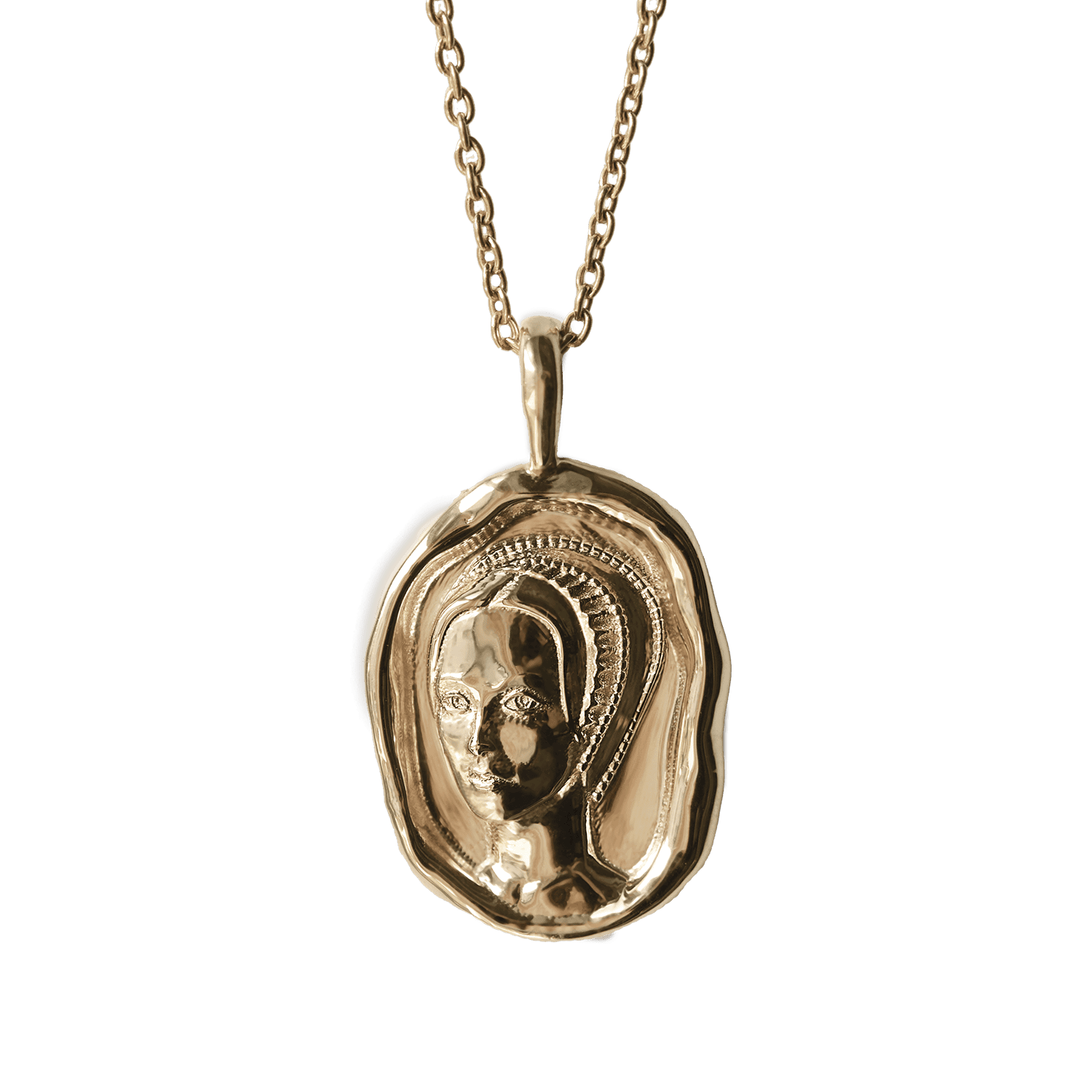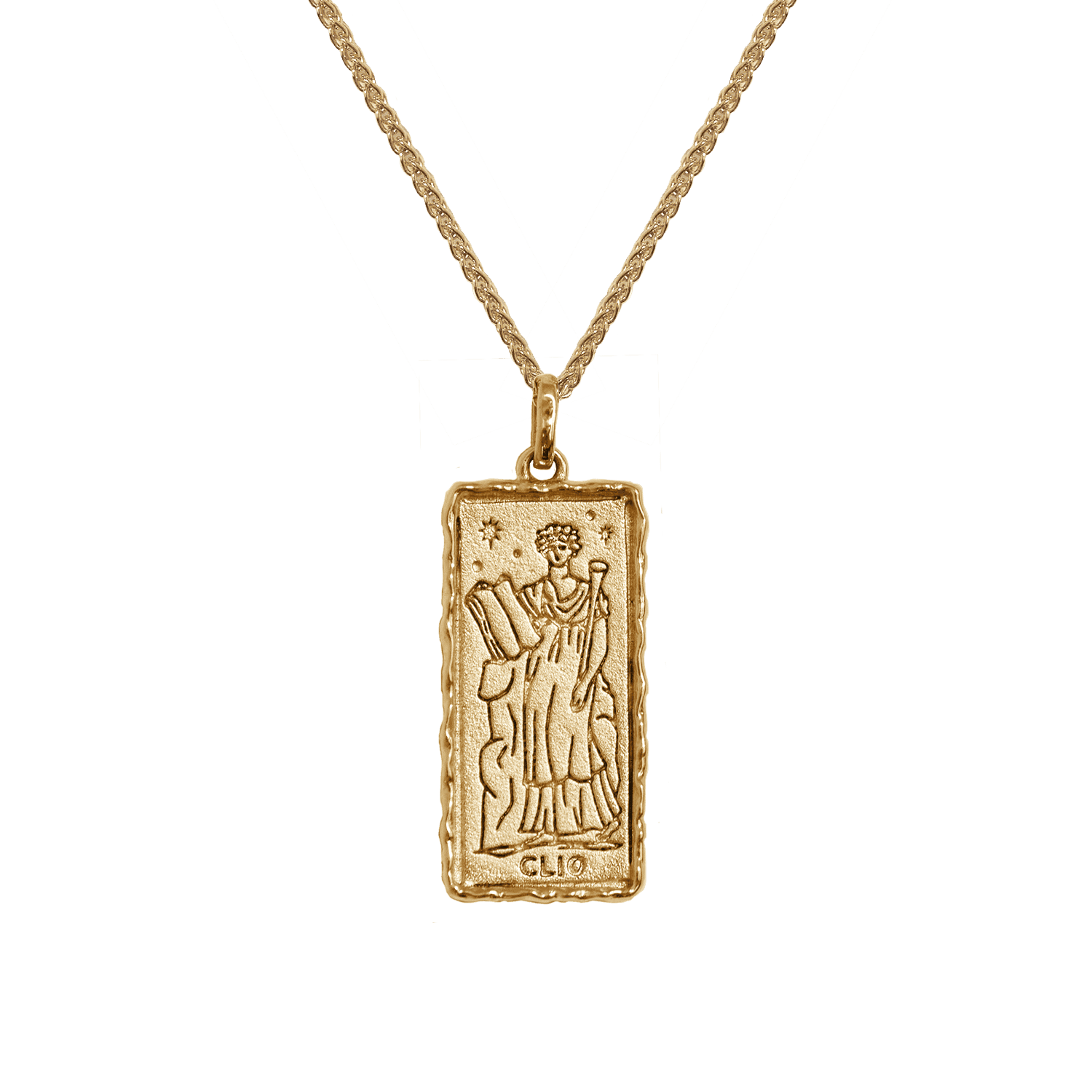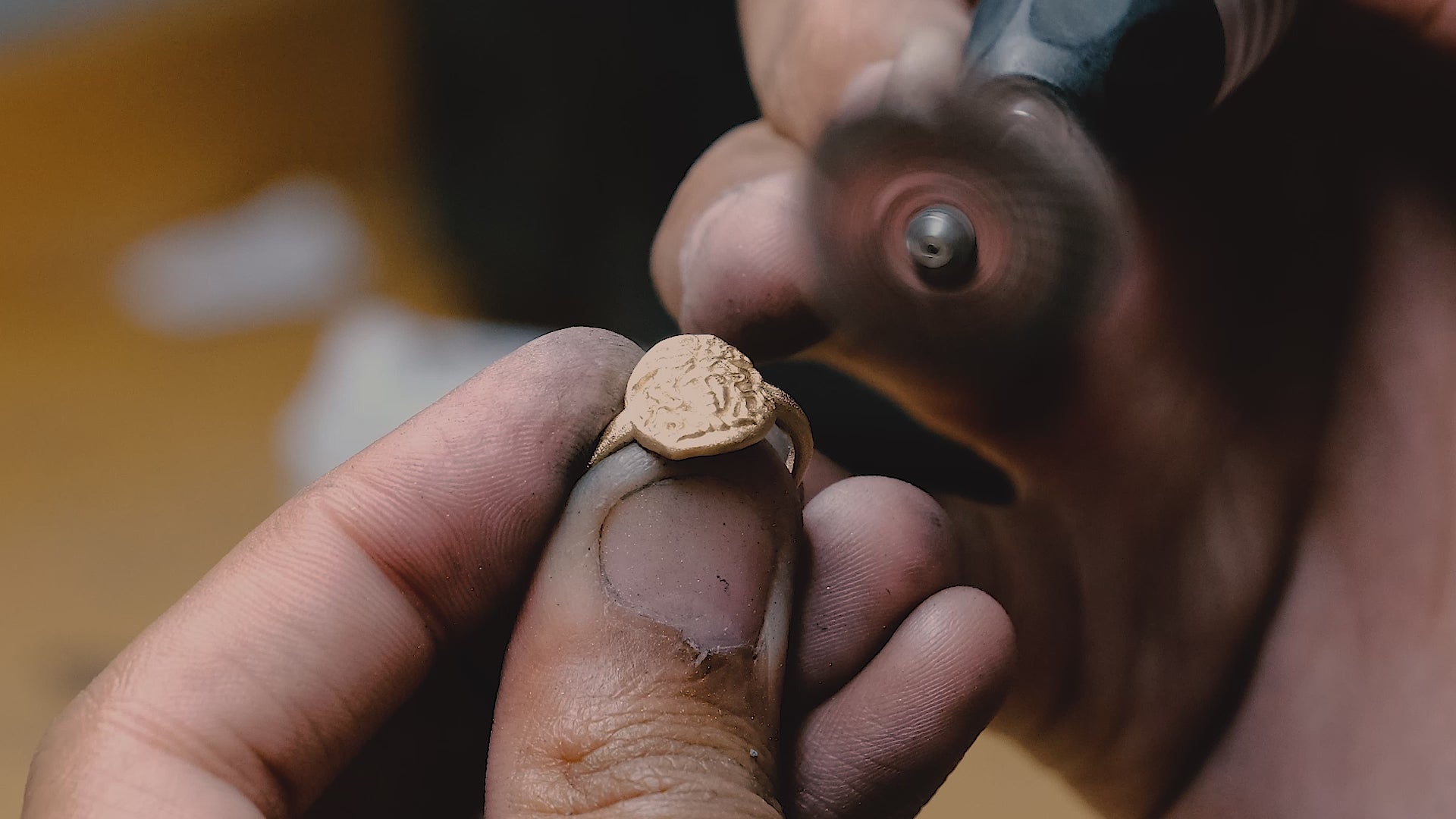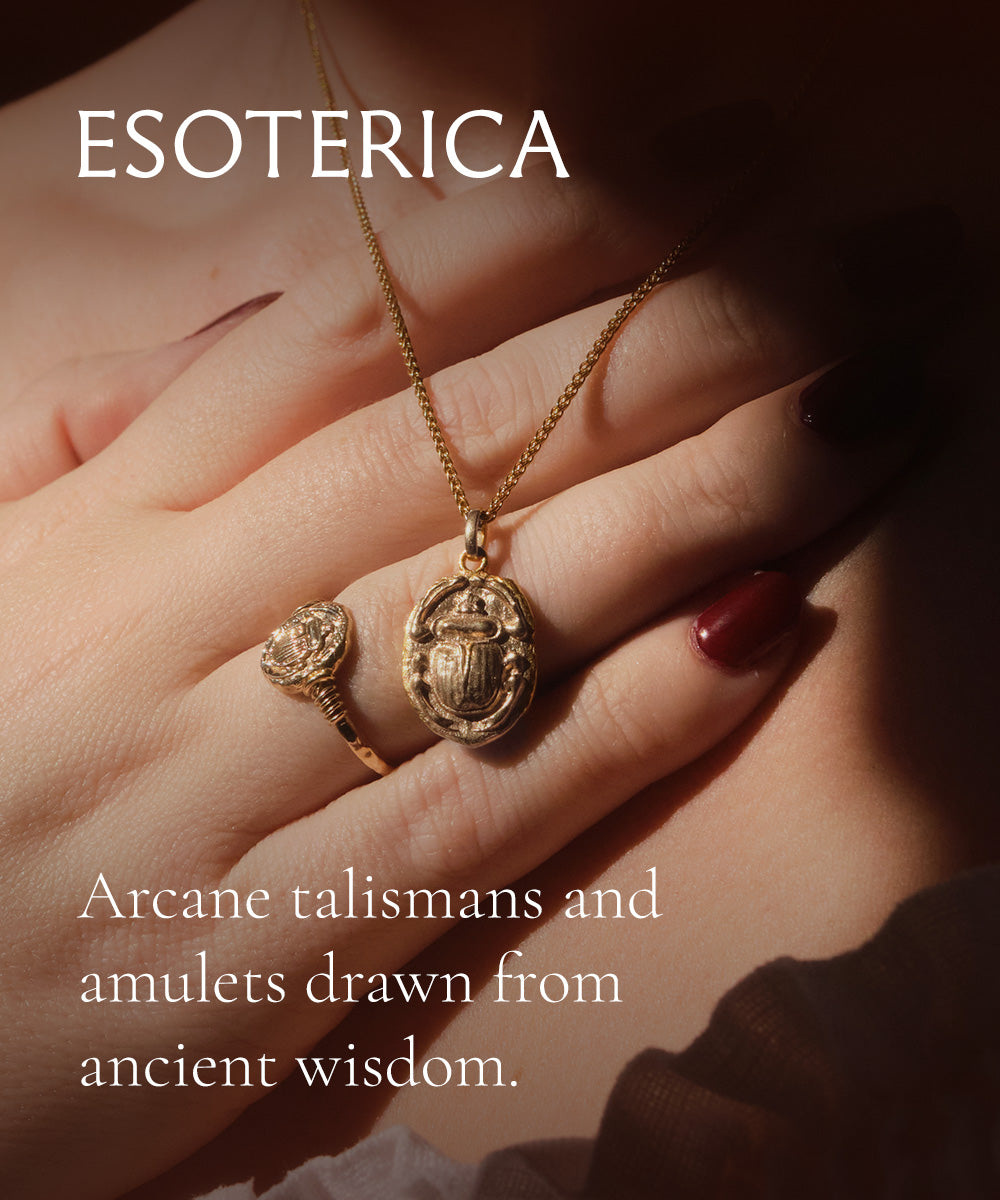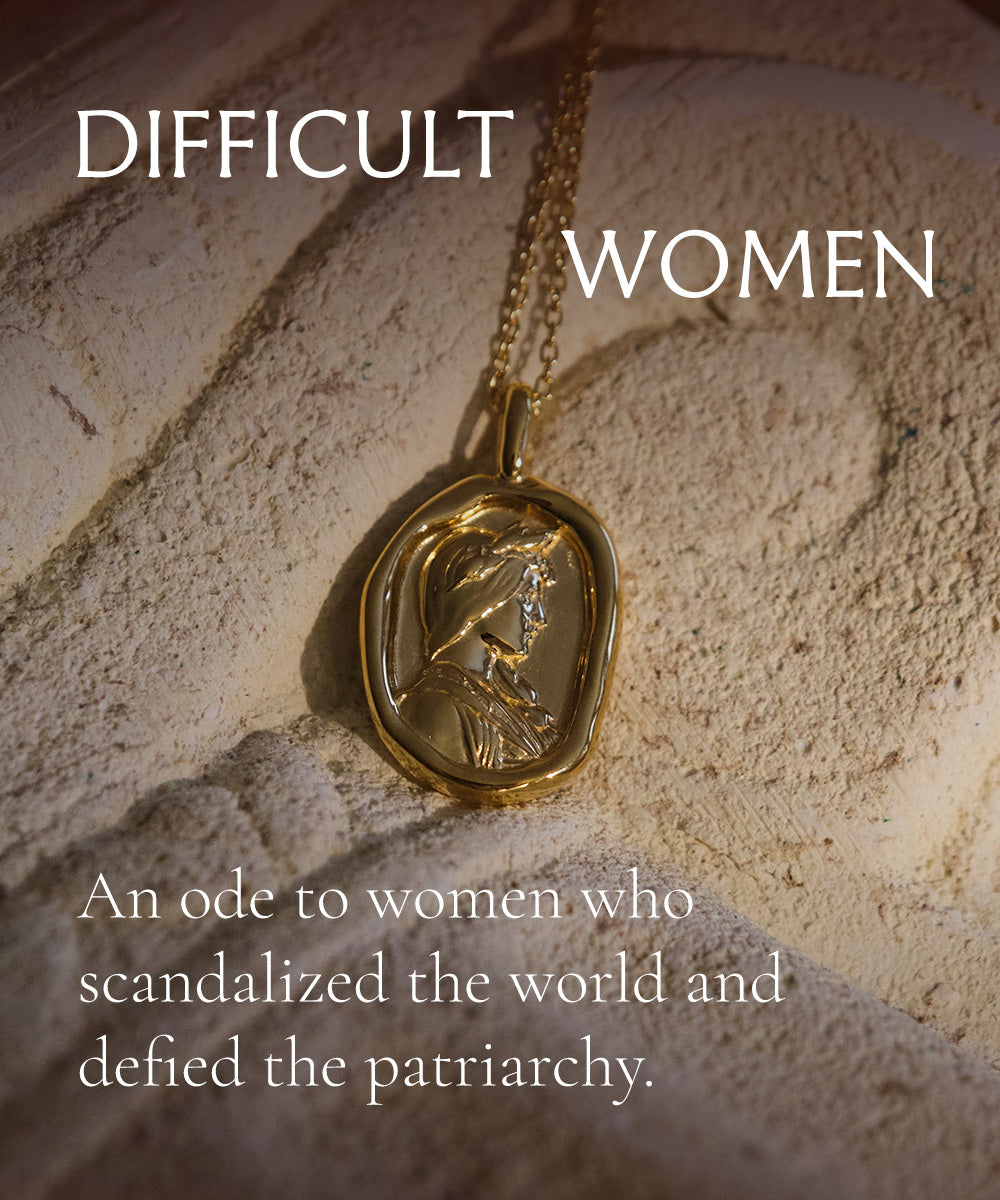
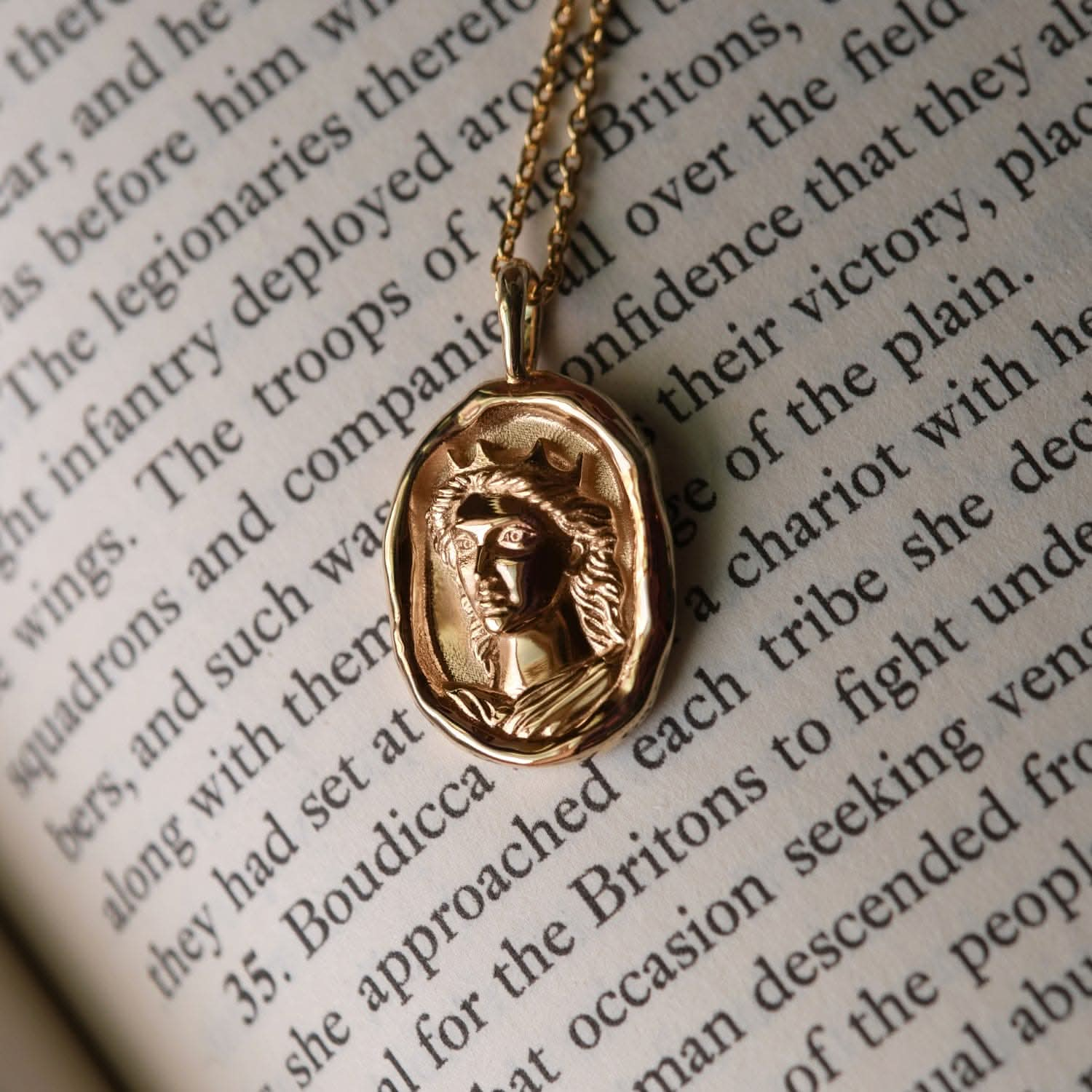
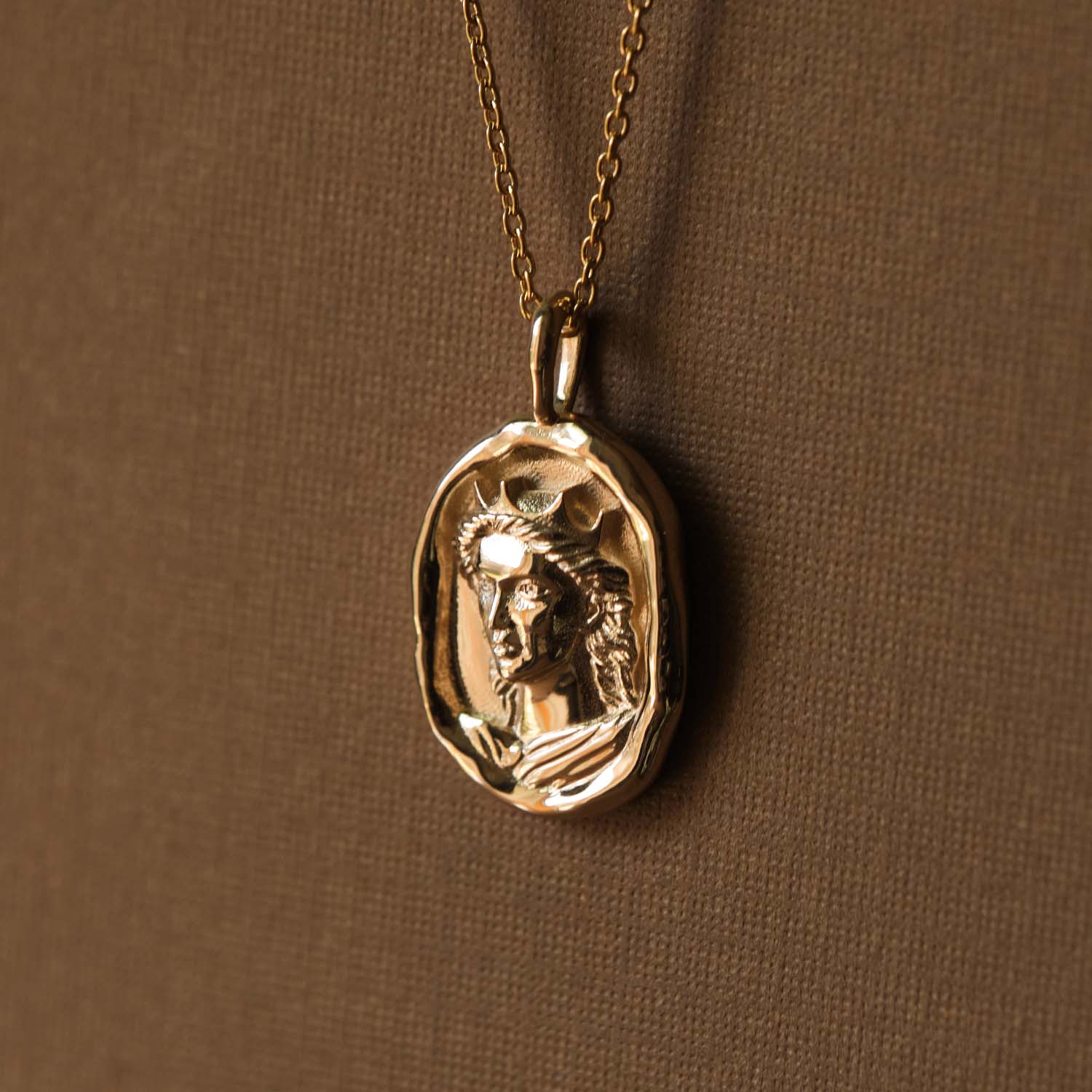
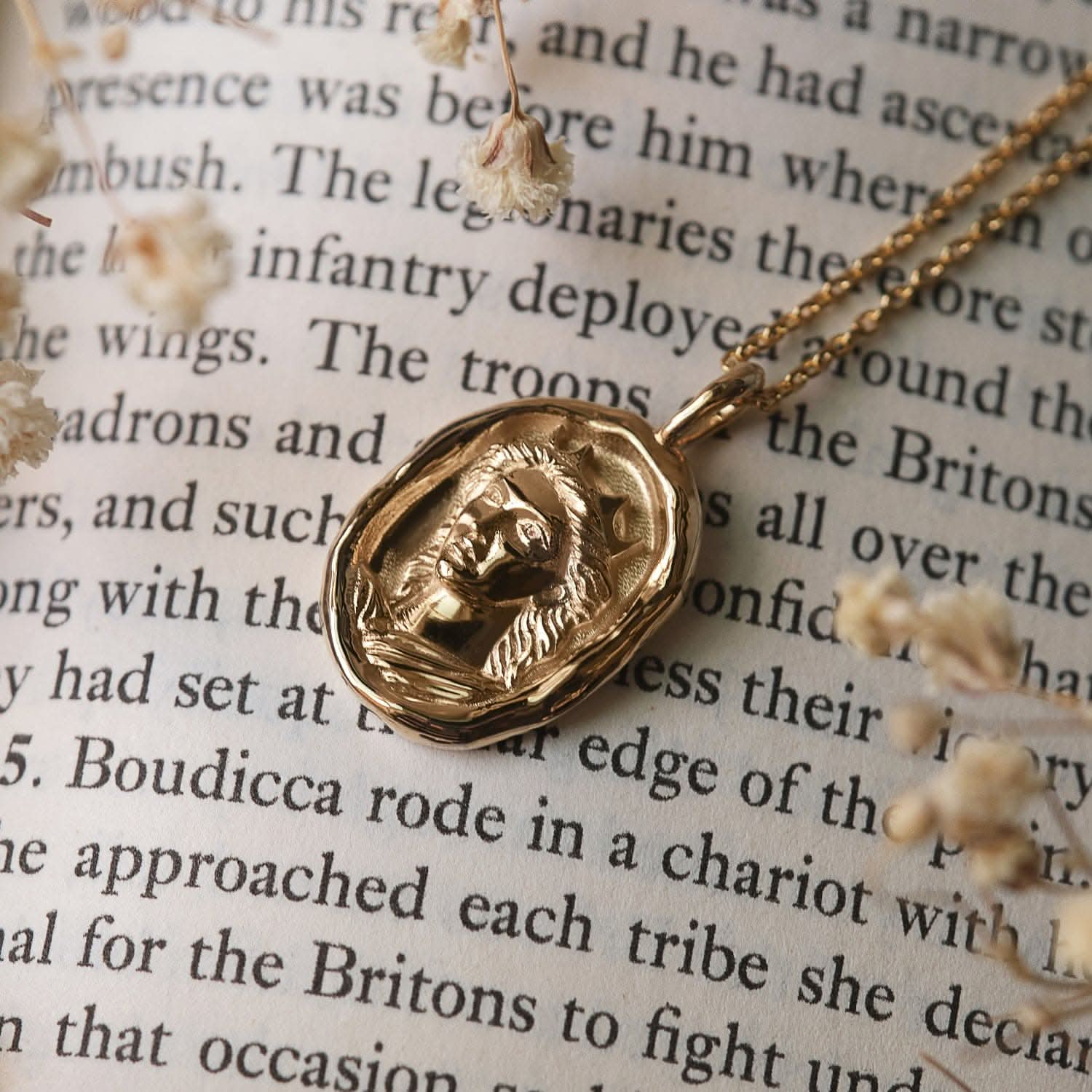


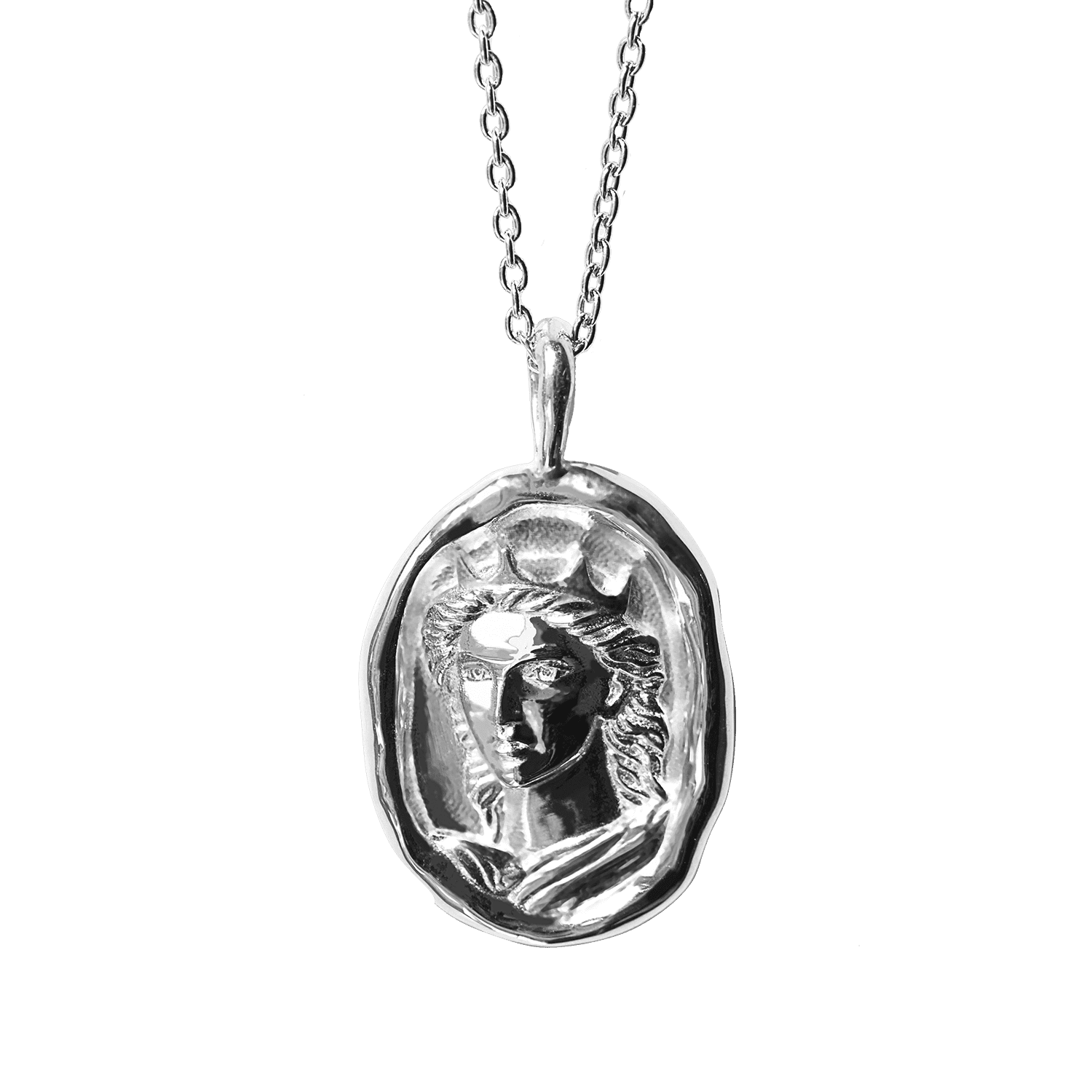

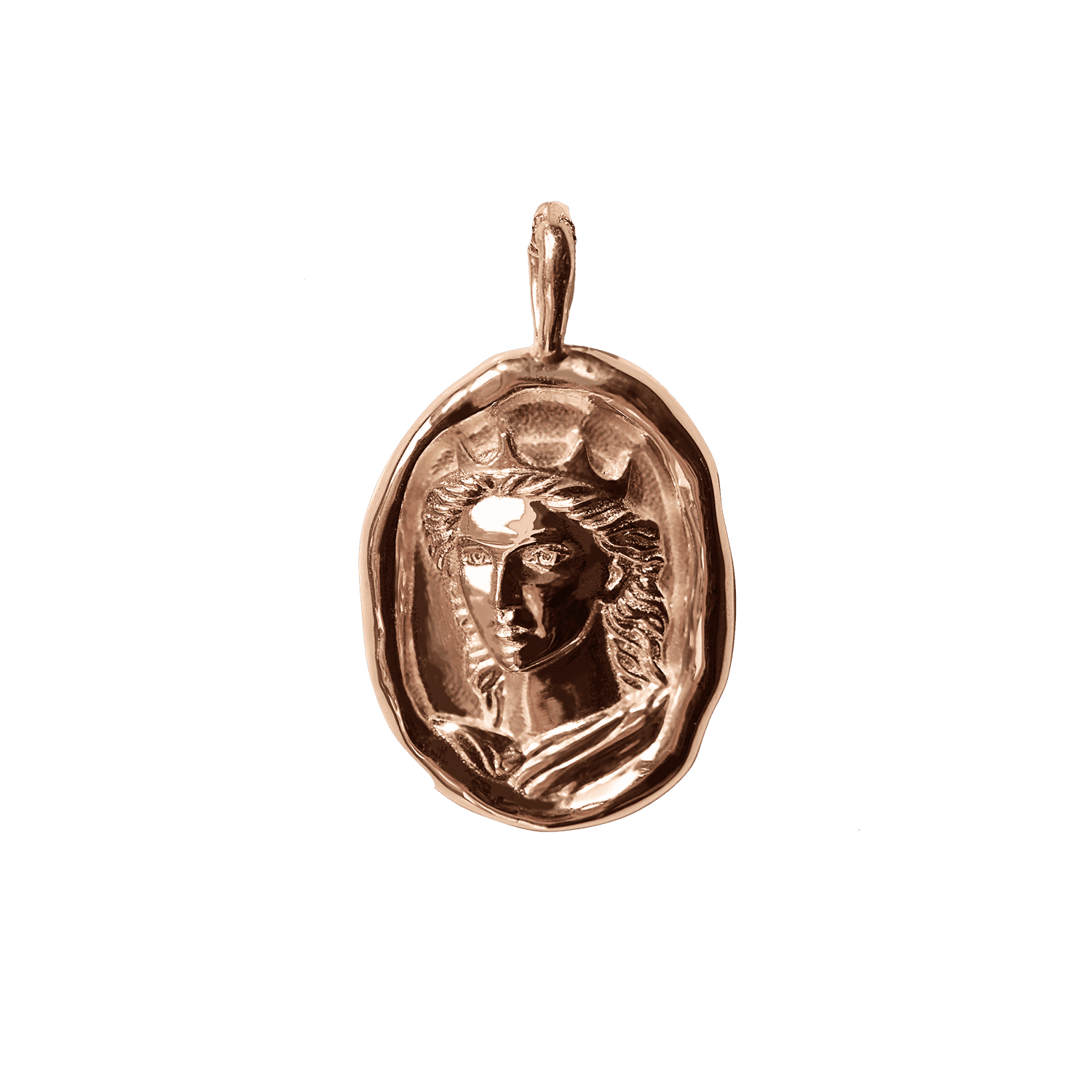
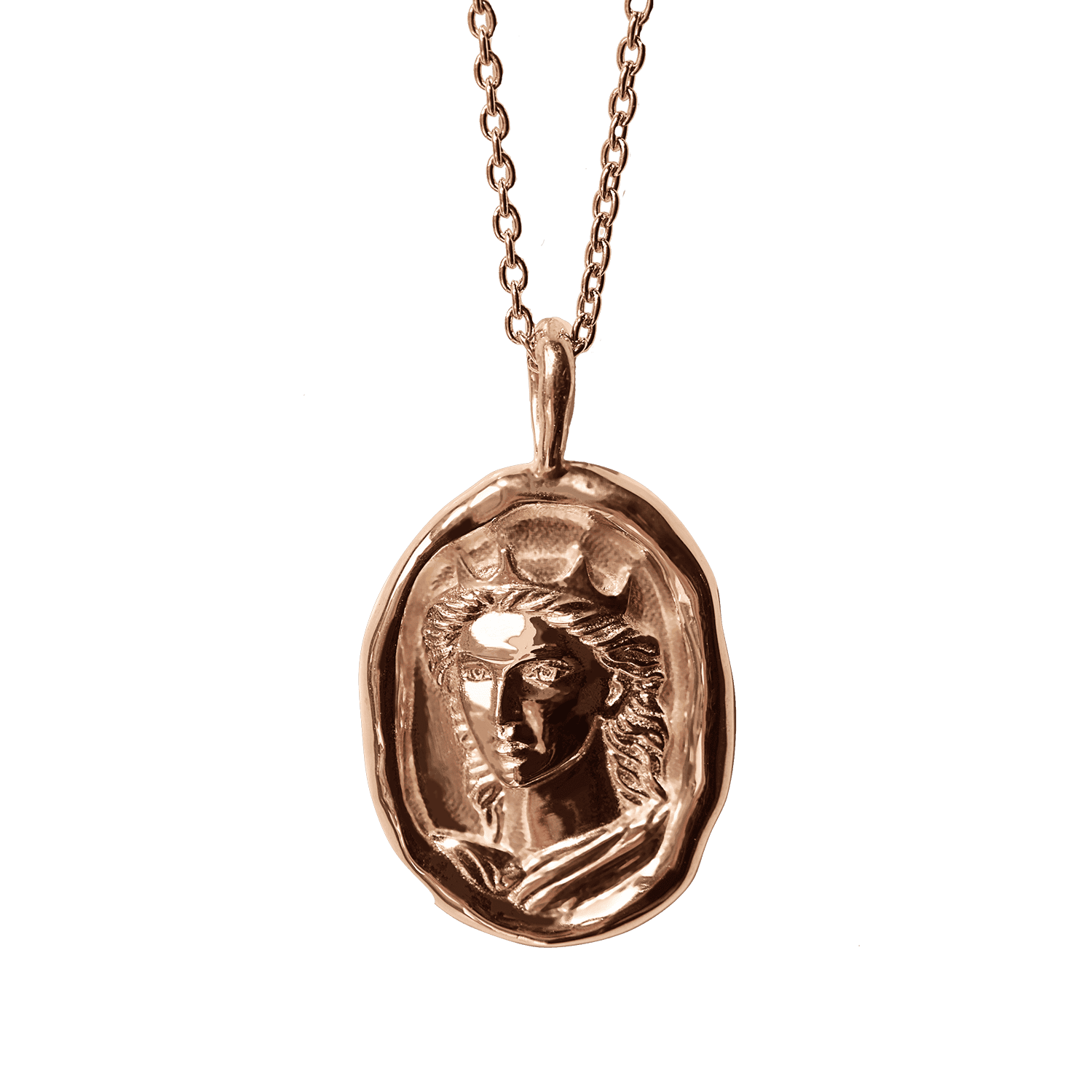










Boudica Molten Gold Pendant
Free global shipping
100% recycled solid gold or vermeil
2 year warranty
Fairly made, fairly priced
Boudica, also known as Boadicea, was a formidable and iconic figure in ancient history, known for her courage, leadership, and indomitable spirit. As the Queen of the Iceni tribe in ancient Britain, her life and legacy are a testament to her determination to defend her people and her homeland against Roman oppression.
Boudica's story is one of resilience and rebellion. In 60 or 61 CE, following the death of her husband, King Prasutagus, the Roman authorities sought to annex the lands of the Iceni and subjected Boudica to brutal treatment. In response, she rallied her people and led a widespread uprising against the Roman occupiers.
Her leadership galvanized a coalition of Celtic tribes, and under her command, they launched a series of fierce and daring attacks on Roman settlements, including the notable sacking of Colchester, London, and Verulamium (modern-day St. Albans). Boudica's revolt was characterized by her unwavering commitment to freedom and her desire to free her people from Roman oppression.
Although Boudica's rebellion ultimately faced defeat in a decisive battle, her legacy endures as a symbol of resistance against overwhelming odds. Her fearlessness, determination, and sacrifice have inspired generations, and she remains an iconic figure in British history and folklore.
In a world where women's roles were often restricted, Boudica defied societal norms and emerged as a warrior queen who fought fiercely for her people's rights and dignity. Her story resonates as a powerful example of female leadership and the unyielding spirit of those who refuse to bow down to tyranny.
Boudica's name is synonymous with bravery, and her memory continues to inspire those who value the principles of freedom, justice, and resilience. Her historical significance transcends time and serves as a testament to the enduring power of those who stand up for their beliefs and their people.
Product Details 🔍
Metal:
100% certified recycled 14k solid gold
Dimensions:
22mm x 15mm
3mm thick
Chain:
20 inch 1mm cable chain with lobster clasp
Hand made in New York City
About Solid Gold ✨
Solid gold is the best option if you:
1. Want to wear your piece forever or pass it down as an heirloom. Solid gold will last for centuries without degrading.
2. Want to invest in jewelry as an asset rather than an accessory. Gold traditionally appreciates in value and can always be melted down and made into a new piece
Unlike many brands, our gold is never hollow - it is always 100% solid, cast using the lost wax method, meaning there is a lot more gold in each piece.
Our gold is 100% certified recycled and each piece is handcrafted here in New York.

About Gold Vermeil
Gold Vermeil, pronounced ver-may, is a french term for a style of gold plating that is regulated by the federal government. Unlike "gold plated" jewelry, vermeil must always be on a solid 925 sterling silver base - rather than brass - with at least 2.5 microns thickness of gold. This is 3 times thicker than normal gold plating.
This makes vermeil a longer lasting product than gold plated jewelry, as well as more valuable because it's composed entirely of precious metals.
When will my piece ship? 🚚
Vermeil: 2 business days
Solid Gold: 2 - 3 weeks
We keep a small inventory of solid gold pieces - please check about the 'Add to Cart' button to see if your piece is in stock.
If not, it will display the estimated ship time so that we can custom make it for you in our NYC studio.
What does Traditional Retail Price mean? 💸
Most brands sell through boutiques and department stores, where the pricing model is usually a 2 - 4x markup from their wholesale price. For example, the jewelry brand sells the piece to the store for $1000, and then the store sells it to you for $2,500.
Because Common Era sells directly from our studio, we can give our customers the same pricing we would be giving to wholesale stores.
- Related products
- Recently viewed

FEATURED BLOG
How We Price Our Ethical Jewelry
People are always curious about how jewelry companies price their pieces - how can that tiny little piece be worth $3000? I was one of those skeptical people until I founded...

